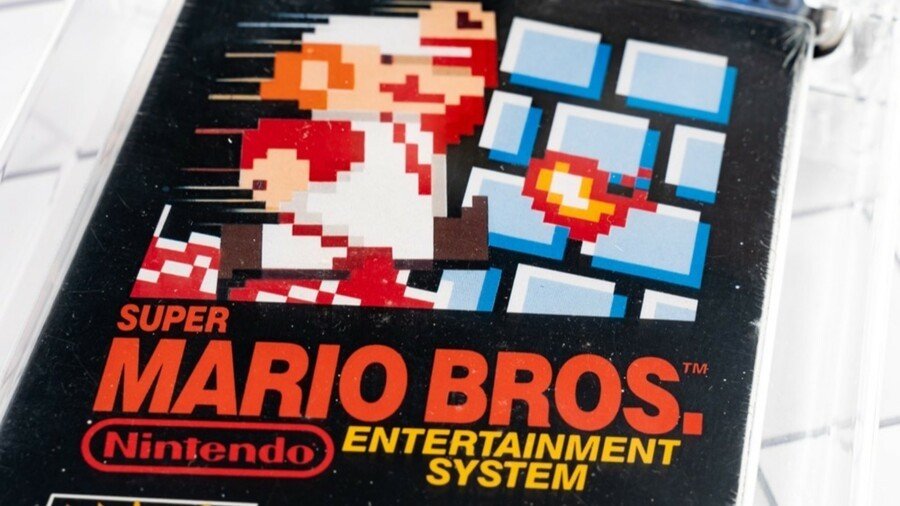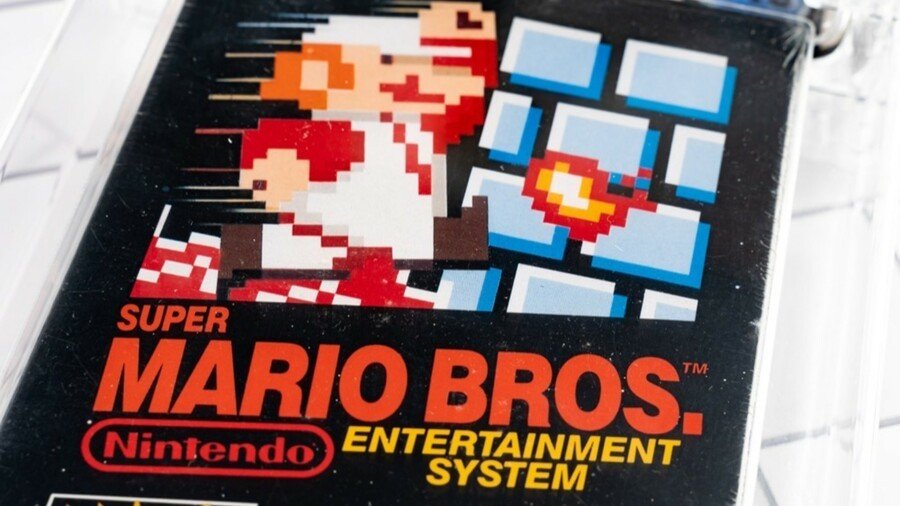
Hey, remember last month when a sealed copy of Super Mario 64 sold for a record-breaking $1.56 million? The previous record of most expensive video game was set just days earlier, when an ultra-rare copy of The Legend of Zelda on NES reached a (then) record-breaking $870,000 at auction. That copy of Zelda beat out the previous record, which was set in March 2021, when a copy of Super Mario Bros. sold for $660,000, which in turn beat the previous record of $156,000 set by Super Mario Bros. 3 in November, 2020.
You can probably guess what's coming next. The record has been set once again by a never-been-opened copy of Super Mario Bros. for the NES, which was sold on collectibles site Rally for a moustache-watering $2 million — which, for anyone keeping track, is over ten times the amount that was world-record-setting in 2020.
But this auction was a little different. Rather than one seller, and one buyer, Rally operates a different system, letting investors buy "shares" of the physical product, who then vote on whether or not to sell, reaping the profits as a proportion of their share in it.
Last year, Rally bought the game for $140,000, and the investors voted against selling it for $300,000. This year, an anonymous $2 million bid was accepted after three-quarters of the investors voted to sell.
This kind of rapid skyrocketing of prices is a little worrying, though, as they certainly can't climb forever. Maybe we're just jealous because our retro game boxes are less "never-been-opened" and more "chewed up by dog and dropped in bath". Ah well — at least we've actually played the game.
Rally's other offerings, in case you want to get in on this physical-part-ownership thing, include a copy of the Declaration of Independence (no, really) and an Apple I computer signed by creator, Steve Wozniak.
Are you nervous about this video game investment bubble, or do you think it's all financial mumbo jumbo anyway? Let us know in the comments!
[source nytimes.com]
